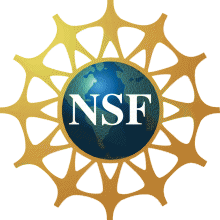About DeafTEC
DeafTEC: Technological Education Center for Deaf and Hard-of-Hearing Students, a National Science Foundation Advanced Technological Education Resource Center, serves as a resource for high schools and community colleges that educate deaf and hard-of-hearing students in STEM-related programs and for employers hiring deaf and hard-of-hearing individuals.
DeafTEC is housed at the National Technical Institute for the Deaf, one of the nine colleges of the Rochester Institute of Technology in Rochester, NY. NTID was established in 1968 to reverse the long history of under-employment and unemployment among our nation’s deaf and hard-of-hearing citizens. Today more than 1,200 deaf and hard-of-hearing students study, share residence halls, and enjoy social life together with 18,000 hearing students on the RIT campus.
Center Goal and Objectives
The goal of the DeafTEC Resource Center is to increase the number of deaf and hard-of-hearing individuals in highly skilled technician jobs in which there continues to be underrepresentation and underutilization of such individuals in the workplace. To achieve this goal, the Resource Center will provide resources to:
- Advance the career self-efficacy and career awareness of deaf and hard-of-hearing high school and college students related to STEM technician careers.
- Improve access to learning for deaf and hard-of-hearing students in STEM classrooms.
- Improve access to learning for student veterans with hearing loss in STEM programs at community colleges.
- Develop employers’ awareness of deaf and hard-of-hearing individuals as potential employees and how they can be hired and successfully integrated into the technician workforce.
Activities
The Resource Center objectives will be realized by:
- Providing professional development opportunities onsite and online for high school teachers, community college faculty, and employers to improve access to learning and STEM technician employment for deaf and hard-of-hearing individuals.
- Providing professional development opportunities onsite and online for community college faculty to improve access to learning for student veterans with hearing loss in STEM programs.
- Expanding and enhancing DeafTEC’s online resources for high schools and community colleges that educate deaf and hard-of-hearing students in STEM-related programs and for employers hiring such individuals.
- Expanding DeafTEC’s online resources for community colleges on best practices for teaching and supporting student veterans with hearing loss in STEM programs.
- Working with ATE Centers and projects to help them meet the unique needs of deaf and hard-of-hearing students and student veterans with hearing loss in STEM programs.
- Expanding dissemination efforts and social media promotion of DeafTEC resources.


